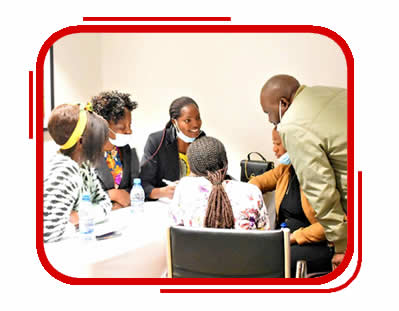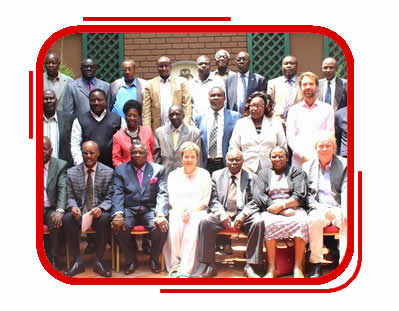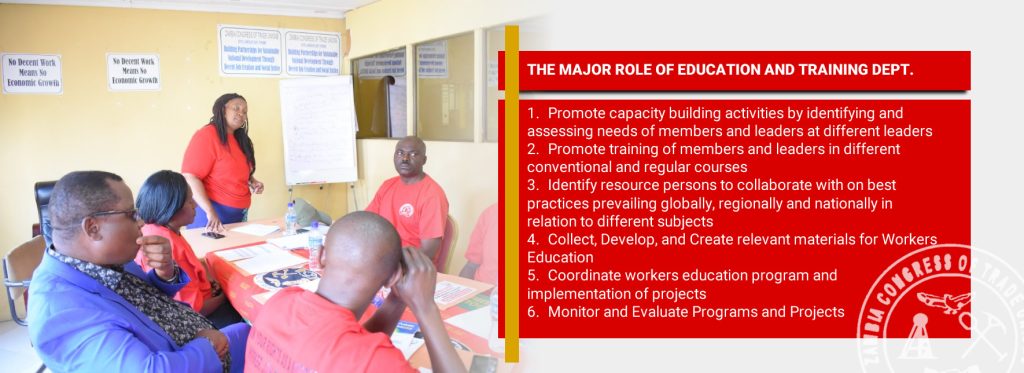
Aaron Makanishi
Director Education & Training
Zambia Congress of Trade Unions
The Education and Training Department is in charge for all training aimed at building capacity for national unions. This is done through strategizes and plans aimed at strengthen the institutional as well as individual leadership capacities for the labour movement in Zambia. This is done in consideration of the ILO goals of social dialogue and Decent Work for All. It also evaluates the principles from the Zambia’s National Development Plans and the UN Sustainable Development Goals (SDGs) with a view of preparing workers for the changes that come in the world of work.

KEY PROGRAM AREAS

Capacity Building Workshop
In grounding unions which hold elections, with new leaders ushered into a new term of office, leadership induction workshops are conducted and supported by the internal funds of ZCTU. Enhancing Trade Union Leadership and overview of Zambian Labour Laws, Roles and Functions of Trade Union Leaders, Understanding win-win Approaches in Industrial Relations, Trade Union Management and Administration, Modern Organizing Technique and Other emerging issues to do with future of work,

Leadership Orientation
Normally, topics short-listed below compose the underlying subjects directing the training.Trade Union Structure and Organization, Fundamental Principles and Rights at Work, Essential Skills for organizing stronger unions, Resolving Conflict Situations at the workplace, Conflict and Grievance Handling, Introduction to Collective Bargaining, The Role of Trade Unions in the workplace and an overview of the Zambian Labour laws.

Pan-African Trade Union Programme (PANAF
The support of the PANAF institution comprising of LO, TCO, FGTB, OATUU, ITUC –Africa and CUT Brasil programme has been to build basic skills for the grassroots leadership.

Child Labour Activities
Sensitization and awareness raising form the basis of the participation of trade union activists to help build a realization of creating interventions and to also to harness the potential of the informal economy.
